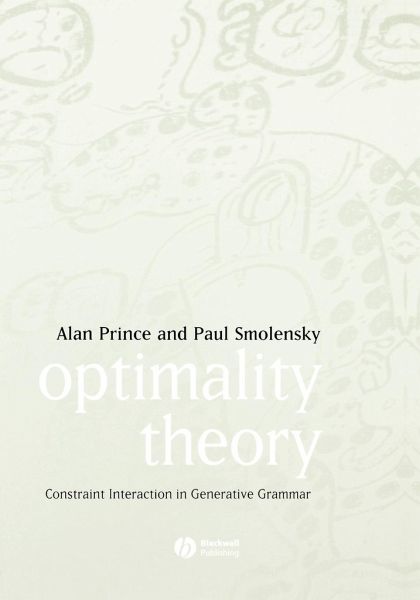
Optimality Theory
Constraint Interaction in Generative Grammar
Versandkostenfrei!
Versandfertig in über 4 Wochen
59,99 €
inkl. MwSt.

PAYBACK Punkte
30 °P sammeln!
Available for the first time in book form, Prince and Smolensky's Optimality Theory is the seminal work in the field. This influential work: - Defines grammatical well-formedness as optimality with respect to a ranked set of universal constraints - Presents the theory both through examples and formally, emphasizing its core commitments: strict domination, the Markedness/Faithfulness distinction, strong universality of the constraint set, interlinguistic variation as variation in ranking - Illuminates generalization patterns shared across empirically diverse phenomena ranging from epenthesis to...
Available for the first time in book form, Prince and Smolensky's Optimality Theory is the seminal work in the field. This influential work: - Defines grammatical well-formedness as optimality with respect to a ranked set of universal constraints - Presents the theory both through examples and formally, emphasizing its core commitments: strict domination, the Markedness/Faithfulness distinction, strong universality of the constraint set, interlinguistic variation as variation in ranking - Illuminates generalization patterns shared across empirically diverse phenomena ranging from epenthesis to infixation to complex dependencies among prominence, syllabification, stress and word-form - Derives universals of basic syllable structure and constructs a prosodic theory based on multipolar scales, laying the groundwork for a domain-general approach to gradient interactions - Shows how to obtain universal and language-particular inventories, identifies the role of optimality in structuring the lexicon, and deals with key foundational issues. For the newcomer, this pivotal work serves as an excellent introduction to the principles and practice of Optimality Theory. For the professional audience, it will suggest many directions for further exploration and development.




